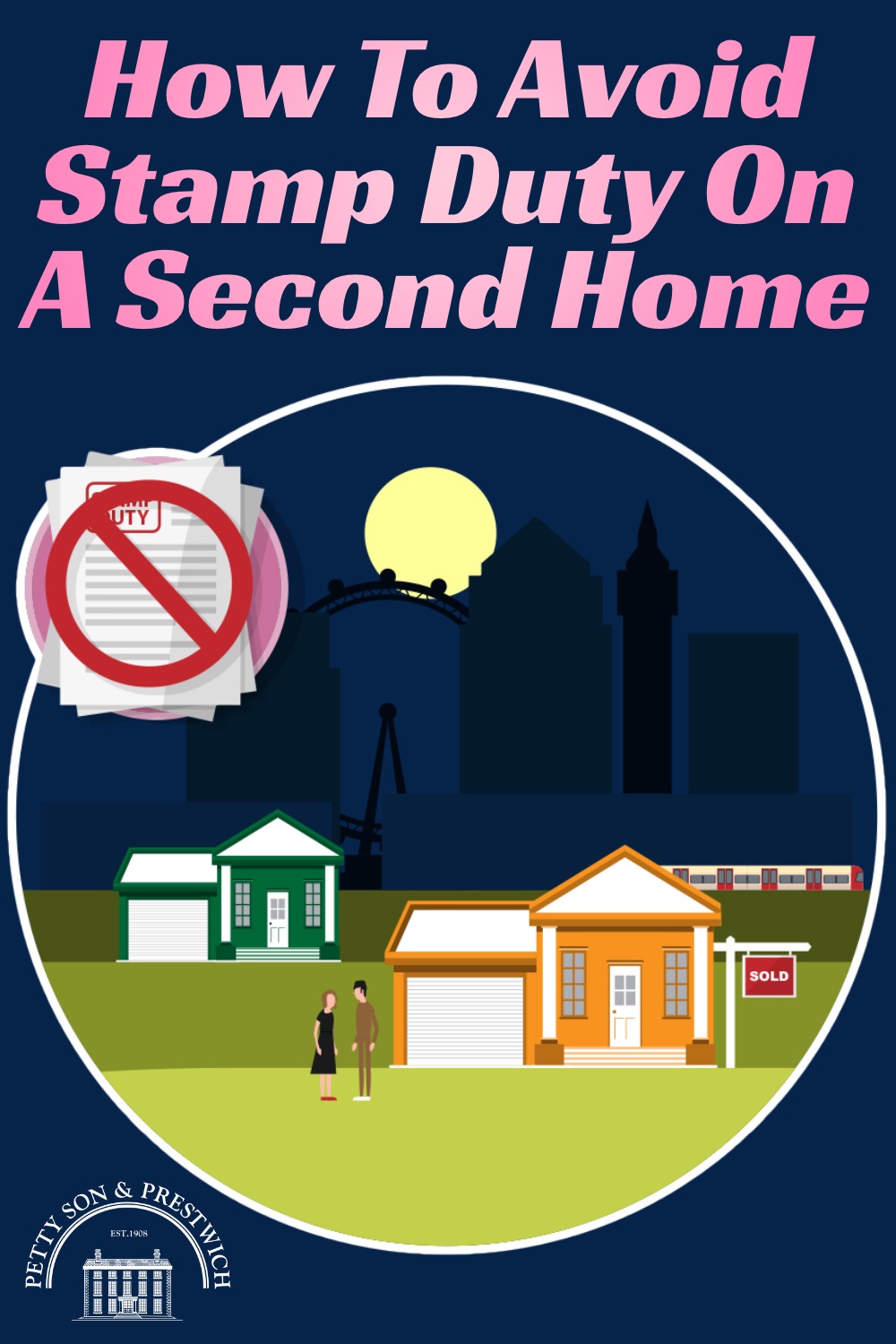If you’re thinking of buying a second home, you’ll no doubt be aware of the additional stamp duty charge that goes along with it. This extra payment can reach giddy proportions, with rates ranging from 3 to 15% depending on the amount you’re paying for the property in question.
It’s no surprise, then, that many buyers wonder whether they can avoid stamp duty on a second home...can it be done?
Let’s find out, shall we?
How much is stamp duty for second homes?

Before we get into whether or not you can dodge the stamp duty due, let’s take a look at the rates for those buying a second home in a little more detail.
Here are the stamp duty charges those buying additional property will pay from July 1st through to September 30th, 2021:
- £0 to £250,000 = 3%
- £250,001 to £925,000 = 8%
- £925,001 to £1.5 million = 13%
- £1.5 million and over = 15%
Stamp duty rates on second homes will revert back to the pre-July 2020 rates from October 1st, 2021:
- £40,001 to £125,000 = 3%
- £125,001 to £250,000 = 5%
- £250,001 to £925,000 = 8%
- £925,001 to £1.5 million = 13%
- £1.5 million and over = 15%
Please note, the rates above are for England and Northern Ireland only. For those in Scotland and Wales, the charges may differ.
When is stamp duty applicable for second homes?
Now that we know what the rates are, it’s time to delve into specific circumstances that could affect whether or not stamp duty is applicable:
You don’t own any property, but the person you’re buying with does
This is a common situation, especially amongst couples. One party will already own a home, while the other may have previously been renting or has already sold. Surely, then, stamp duty can be swerved if the person who doesn’t own another property buys the new home solely in their name?
The quick answer is, provided you’re not married or in a civil partnership, yes you can avoid stamp duty this way, but there’s a lot more to consider.
Lenders will require the named party to pass their affordability tests alone, which could prove to be problematic. Even if you are able to demonstrate affordability, there’s the ongoing issue of who actually owns the property should you decide to go your separate ways in the future.
Paying stamp duty now could end up looking like a bargain compared to the expensive legal fees you may incur further down the line should the worst happen.
You are buying the property for someone else
Another scenario that some may find themselves in is buying a property for someone else, usually their children.
While you may feel as though the property isn’t exactly a second home for your own use or benefit, in the eyes of the taxman, if your name is on the deeds, it most certainly is. Therefore, stamp duty will be due.
You do, however, have a few alternatives. Instead of appearing on the deeds, you could simply become the guarantor or gift the deposit, both of which will avoid stamp duty charges.
Another option would be to take out a family offset mortgage, which has become an increasingly popular route for parents over the last few years. They work by using your savings as a form of deposit, but you still own the money.
Your savings are placed in an account with the lender and returned to you once your child has repaid the agreed amount, which is usually somewhere in the region of 30% of the mortgage.
You do not own a home in the UK, but own property abroad
Unfortunately, if you own a home abroad, you’ll be liable for stamp duty here in the UK, even if this is your first property purchase on these shores.
You have inherited property
This will be dependent upon how much you have been left and whether or not you are the sole owner.
If you are left sole ownership and you then decide to buy another home, you will be liable to stamp duty charges. However, if you have been left a half share or less, you may be eligible for exemption.
You are extending your lease on a second property
When it comes to stamp duty, lease extensions are considered to be the same as any other property purchase, so stamp duty applies. However, many will not pay it, as the threshold set means they are not liable.
For those with second homes, however, that threshold is set much lower at £40,000, which means you will need to pay the higher rate of stamp duty if your lease extension bill is greater than £40k. The only way you’ll avoid stamp duty here is if you’re extending the lease on your main residence, then you will be exempt.
Ways to avoid stamp duty on your second home
As you can see, there are very few instances where stamp duty on a second home will not be due, and the ways in which you can avoid the charges altogether are seriously limited.
We assume this is not really going to be much of a surprise to anyone. After all, why would the government put a tax in place and leave loopholes open so everyone can avoid paying it?
Seriously limited, however, doesn’t mean impossible (although it’s a close run thing!), so how can you avoid stamp duty on a second home? There are two main ways:
- Buy a property for £40,000 or less
- Opt for an alternative home, such as a motorhome or houseboat, instead
Option one is going to be extremely difficult to achieve these days, and option two isn’t going to be for everyone either. So, while there are ways in which you can technically avoid paying stamp duty, doing so in reality is going to require some sacrifices to make it happen.
Stamp duty refunds for second homes
If you sell your main residence within three years of paying additional stamp duty rates on your second home, you may be entitled to a refund. This can often happen when buyers fall in love with a property whilst struggling to sell their original home, so they buy the new place while they wait for their old home’s sale to complete.
While you may have no intention of keeping both properties long-term, you still effectively own two homes, so stamp duty will be due. Providing the sale goes through within three years, however, you will be eligible for a refund.
There are a number of other reasons why HMRC may repay stamp duty charges, and we’ve covered them all in a previous post: Stamp Duty Refund: Who's Entitled And How Do You Claim?
Whether you’re thinking of buying property number one, two, three, four, or more, Petty Son and Prestwich can help you get to where you want to be. We have been in the property industry since 1908, providing a service with a customer-first ethos to buyers, sellers, landlords, and tenants.
So, if you’re looking to buy or sell in or around the capital, give us a call. Our friendly sales team can’t wait to welcome you to the family.
